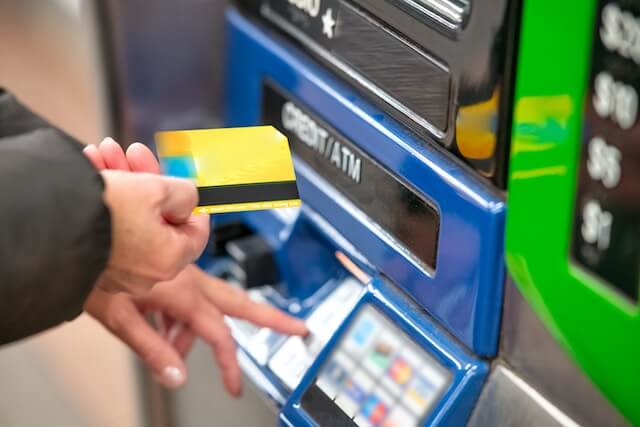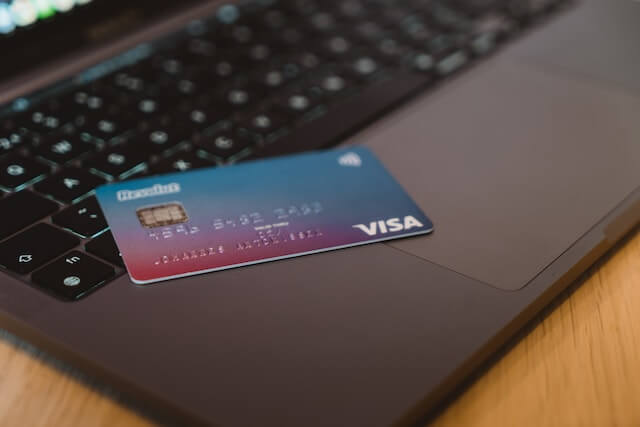Introduction
Cryptocurrency enthusiasts and investors understand the importance of choosing the right Bitcoin wallet to store their digital assets securely. Bitcoin wallets come in various forms, and one of the most popular options is the software Bitcoin wallet. In this comprehensive guide, we’ll explore what software Bitcoin wallets are, why you should consider using one, and provide insights into the best options available.
What is a Bitcoin Wallet?
Before we delve into software Bitcoin wallets, let’s clarify what a Bitcoin wallet is. Essentially, it’s a digital tool that allows you to store, receive, and send your Bitcoin. It stores your private keys, which are essential for accessing your holdings on the blockchain.
Types of Bitcoin Wallets
There are different types of Bitcoin wallets, including software wallets, hardware wallets, paper wallets, and mobile wallets. In this article, we’ll focus on software wallets.
Why Choose a Software Bitcoin Wallet?
Software Bitcoin wallets offer several advantages:
Convenience
Software wallets are easy to use and can be accessed through your computer or mobile device. They provide a user-friendly interface for managing your Bitcoin.
Accessibility
You can access your software wallet from anywhere with an internet connection, making it convenient for users on the go.
Security Measures
Top-notch software wallets incorporate robust security features to protect your digital assets.
Top Software Bitcoin Wallets
Now, let’s take a look at some of the best software Bitcoin wallets available:
- Electrum: Known for its speed and security features, Electrum is a popular choice among Bitcoin users.
- MyEtherWallet: Ideal for Ethereum and Ethereum-based tokens, MyEtherWallet is user-friendly and highly secure.
- Exodus: Exodus supports multiple cryptocurrencies and offers a visually appealing interface.
- Coinomi: This mobile wallet is compatible with various coins and tokens, making it a versatile option.
How to Choose the Best Software Bitcoin Wallet
When selecting a software Bitcoin wallet, consider the following factors:
Security Features
Look for wallets with advanced security measures like two-factor authentication and multi-signature support.
User-Friendliness
Choose a wallet with an intuitive interface that aligns with your level of expertise.
Supported Cryptocurrencies
Ensure the wallet supports the cryptocurrencies you intend to store.
Backup and Recovery Options
A reliable wallet should offer secure backup and recovery options.
Setting Up a Software Bitcoin Wallet
Getting started with a software Bitcoin wallet involves a few key steps:
Download and Installation
Choose a wallet, download the software, and install it on your device.
Creating a New Wallet
Follow the wallet’s setup process to create a new wallet.
Private Keys and Seed Phrases
Safeguard your private keys and seed phrases as they are crucial for wallet recovery.
Making Your First Bitcoin Transaction
Learn how to send and receive Bitcoin through your software wallet.
Security Tips for Software Wallet Users
When using a software wallet to store your Bitcoin or other cryptocurrencies, it’s crucial to prioritize security to safeguard your digital assets. Here are some essential security tips to keep in mind:
1. Keep Software and Systems Updated:
Regularly update your operating system, wallet software, and any security software you have installed. Critical security patches that guard against vulnerabilities are frequently included in these updates.
2. Use Strong, Unique Passwords:
Create strong, complex passwords for your wallet. Do not use information that can be guessed, such as birthdays or everyday words. Consider using a combination of uppercase and lowercase letters, numbers, and special characters.
3. Enable Two-Factor Authentication (2FA):
Whenever possible, enable 2FA for your software wallet. Two-factor authentication adds an extra layer of security by requiring a second verification step, such as a one-time code sent to your mobile device.
4. Safeguard Your Private Keys and Seed Phrases:
Your cryptocurrency holdings are only unlocked by your private keys and seed phrases. Store them in a safe, secure location. Consider using a hardware wallet to keep your private keys offline.
5. Be Wary of Phishing Attempts:
Watch out for phishing emails, websites, or messages that attempt to trick you into revealing your wallet credentials. Always double-check the authenticity of the sources before sharing any sensitive information.
6. Verify Wallet Addresses:
Verify the recipient’s wallet address twice before transferring any cryptocurrency. Typos or fraudulent addresses can lead to irreversible losses.
7. Use Reputable Wallets:
Choose software wallets from reputable sources and developers. Avoid downloading wallets from unverified websites or third-party sources.
8. Avoid Public Wi-Fi for Transactions:
When making cryptocurrency transactions, especially significant ones, avoid using public Wi-Fi networks. These networks can be less secure and potentially expose your transactions to eavesdropping.
9. Educate Yourself:
Keep yourself updated on the most recent security risks and industry best practices. Understanding the risks and how to mitigate them is crucial for your wallet’s safety.
10. Backup Your Wallet:
Regularly create backups of your wallet data and store them in multiple secure locations. This ensures you can recover your funds in case of a device failure or loss.
11. Test Small Transactions:
Before conducting significant cryptocurrency transactions, test with a smaller amount to ensure the process works as intended. This minimizes the risk of errors.
12. Keep Your Wallet Offline:
If you’re not actively trading or using your cryptocurrencies, consider keeping your software wallet offline, also known as “cold storage.” This reduces the exposure to online threats.
13. Be Cautious of Third-Party Services:
Exercise caution when using third-party services in conjunction with your software wallet, as they may introduce additional security risks. Research and choose trusted service providers.
By following these security tips, you can significantly reduce the risks associated with using a software wallet and ensure the safety of your cryptocurrency holdings. Remember that the cryptocurrency space is dynamic, so staying informed and proactive is key to maintaining a secure wallet.
Mobile vs. Desktop Software Wallets
When it comes to software Bitcoin wallets, you’ll encounter two primary categories: mobile wallets and desktop wallets. Each has its advantages and disadvantages, and the choice between them largely depends on your lifestyle and specific needs.
Mobile Software Wallets
Mobile software wallets are designed for smartphones and tablet devices. Here are some key points to consider:
1. Accessibility: Mobile wallets are extremely convenient because you can carry them with you wherever you go. Whether you’re at a coffee shop or a business meeting, you can easily access your Bitcoin holdings with just a few taps on your mobile device.
2. User-Friendly: Mobile wallets often have intuitive interfaces, making them suitable for both beginners and experienced users. They’re designed to be user-friendly and easy to navigate.
3. On-the-Go Transactions: If you frequently make transactions or need to access your Bitcoin quickly, mobile wallets are an excellent choice. They allow you to send and receive Bitcoin in real-time, which can be useful for day-to-day use.
4. Security Measures: Many mobile wallets incorporate strong security features such as PIN codes, biometric authentication (fingerprint or face recognition), and remote device locking in case your phone is lost or stolen.
5. Limited Storage: Mobile devices typically have limited storage capacity, which can affect the number of cryptocurrencies and assets you can store on your mobile wallet. If you’re holding a diverse range of digital assets, you might need to consider alternative options.
Desktop Software Wallets
Desktop software wallets, as the name suggests, are designed for personal computers. Here’s what you need to know about them:
1. Enhanced Security: Desktop wallets are generally considered more secure than mobile wallets. Since they are not as exposed to constant internet connectivity as mobile devices, they are less susceptible to online threats. However, your computer’s security is your responsibility, so make sure to keep your operating system and security software up to date.
2. Storage Space: Desktop wallets offer more storage space than mobile wallets. This makes them suitable for users who have extensive cryptocurrency portfolios.
3. Offline Access: Even if your desktop is not connected to the internet, you can access your wallet. This “cold storage” feature can provide an added layer of security, as your assets are not constantly exposed to the internet.
4. Less Mobility: Desktop wallets are less mobile than their mobile counterparts. If you need to access your wallet while away from your computer, you’ll need to rely on a mobile wallet or web-based wallet.
5. Learning Curve: Desktop wallets may have a steeper learning curve, especially for those new to cryptocurrency. They often come with more advanced features and settings that might be overwhelming for beginners.
In conclusion, the choice between mobile and desktop software wallets boils down to your preferences and priorities. If you value accessibility and on-the-go transactions, a mobile wallet may be the right fit. However, if you prioritize security and have a substantial cryptocurrency portfolio, a desktop wallet may be the better option. Some users even opt for a combination of both to balance convenience and security based on their needs.
Conclusion
Choosing the best software Bitcoin wallet is a critical decision for any cryptocurrency enthusiast. With the right wallet, you can enjoy the convenience of managing your digital assets securely. Remember to consider your specific needs and preferences when making your choice.
FAQs
- What is the most secure software Bitcoin wallet?
- Security depends on various factors, but wallets like Electrum and MyEtherWallet are known for their strong security features.
- Can I use the same software wallet on different devices?
- Some software wallets offer cross-device compatibility, but it’s essential to check the wallet’s specific features.
- What is a seed phrase, and why is it important?
- A seed phrase is a series of words that can be used to recover your wallet. It’s crucial in case you lose access to your wallet.
- Are software wallets free to use?
- Many software wallets are free, but some may charge fees for certain features or services.
- How do I protect my software wallet from hacking attempts?
- To protect your software wallet, use strong passwords, enable security features, and be cautious of phishing scams.
In conclusion, choosing the best software Bitcoin wallet involves considering factors like security, user-friendliness, and supported cryptocurrencies. With the right wallet, you can confidently manage your Bitcoin investments. Remember to follow security best practices to keep your digital assets safe.






